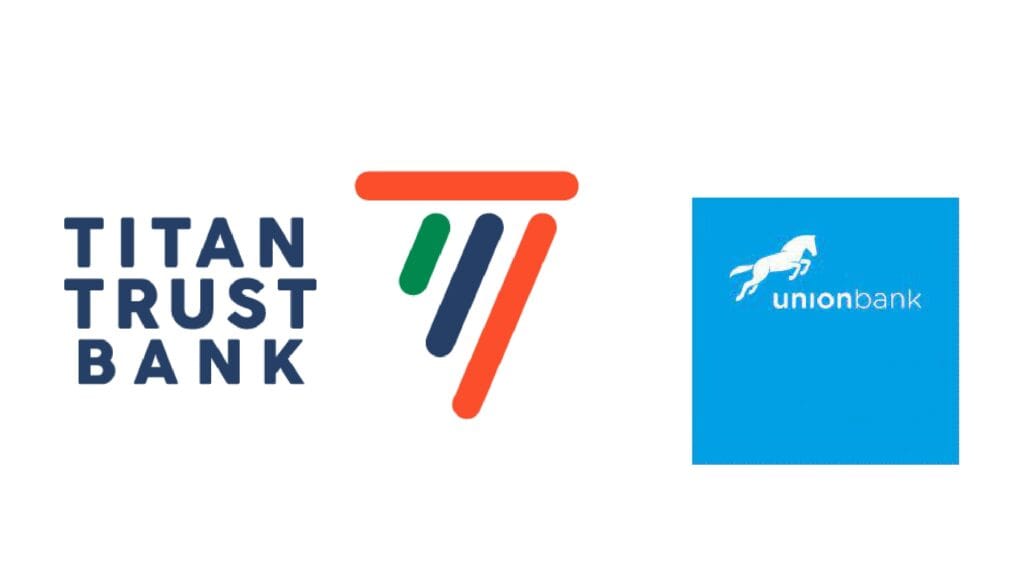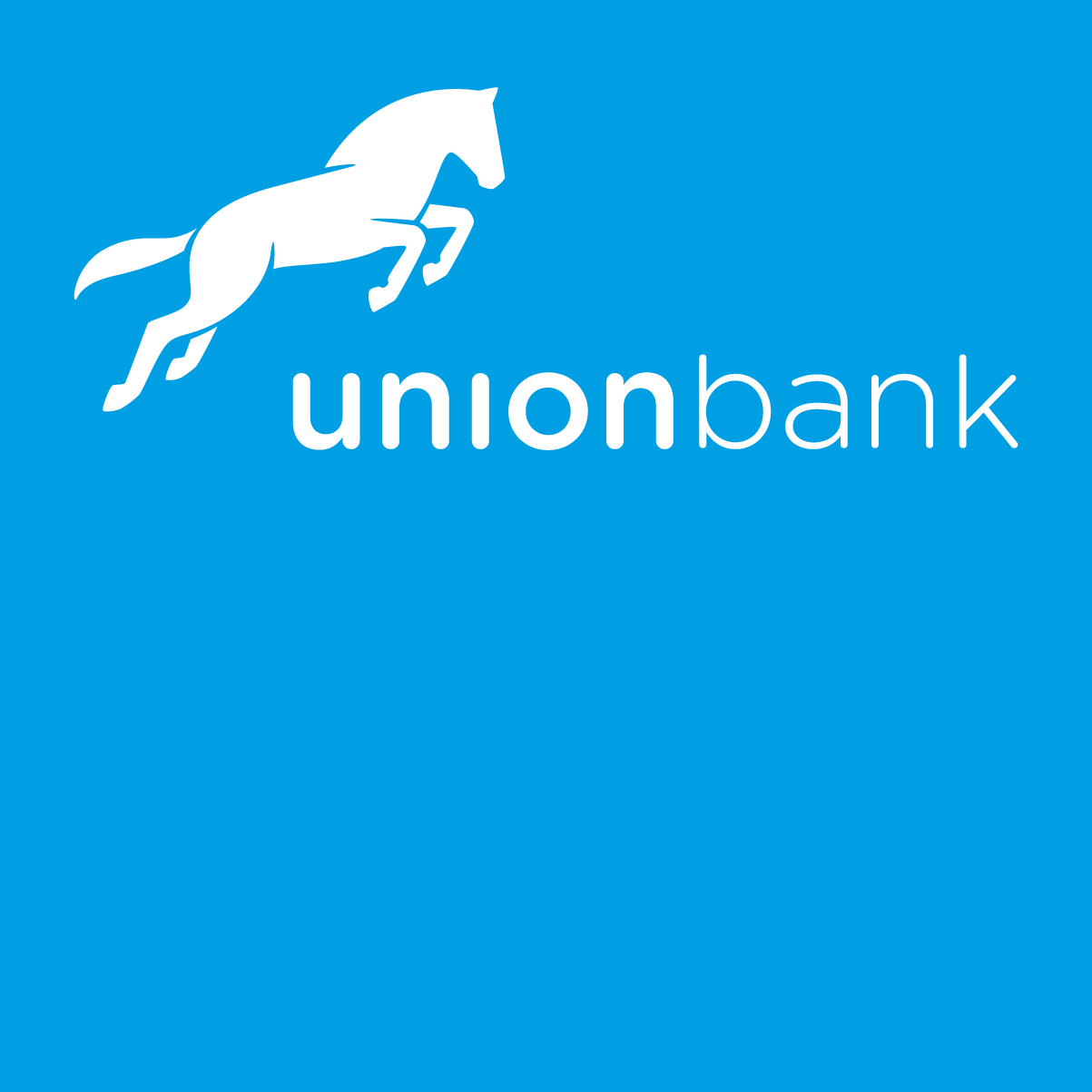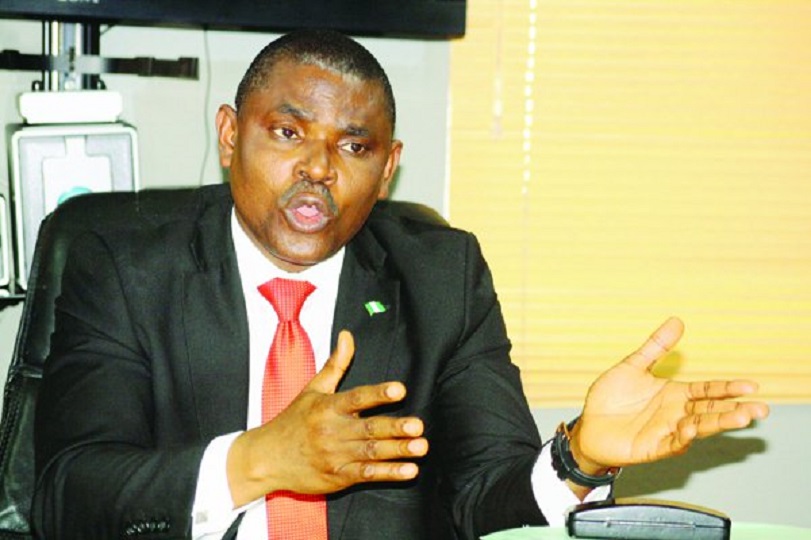Banking
TTB/Union Bank: A Call for Transparency By Investigators
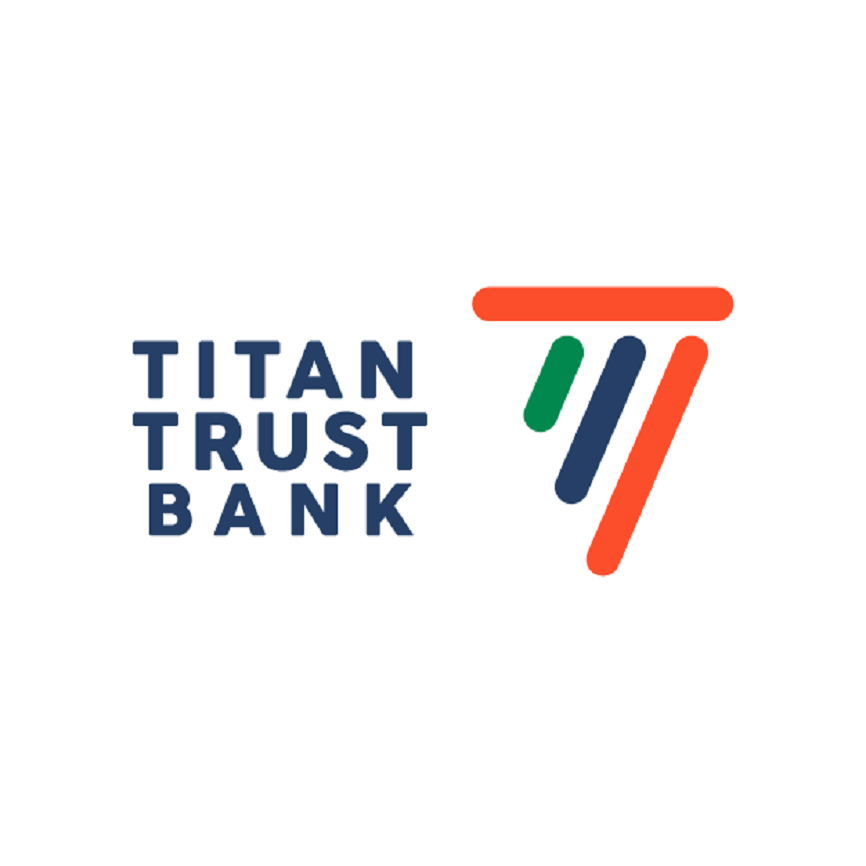
By Azubike Ugwu
In the last three days, we have seen a storm of allegations regarding the ownership of Titan Trust Bank Limited (TTB) and Union Bank of Nigeria Plc (“Union Bank”), and this has captured public attention.
These claims, reportedly stemming from a report submitted to the President by a Special Investigator, Mr Jim Obaze, have initiated a critical discussion around transparency.
However, the lack of access to the report begs for an open dialogue to clarify the unfolding narrative.
The core accusation revolves around the former Central Bank Governor’s alleged use of intermediaries in acquiring Union Bank and doubts about whether Titan Bank met the reported purchase price. To understand the gravity of these claims, it’s imperative to grasp the financial magnitude of the investors steering these banks.
TGI Group, with assets exceeding N3.75 trillion and 2022 revenues surpassing N1.74 trillion, emerges as a financial powerhouse. To underscore this, the sale of its subsidiary “Chivita” to Coca-Cola Group companies in 2020 for more than $500 million, a figure nearly three times the alleged equity element in the Union Bank acquisition, speaks volumes about the group’s financial robustness. TGI Group’s financial resilience, underscored by concrete figures, paints a picture of stability.
Contrary to these allegations, documents availed necessary parties indicate that payment for Union Bank shares was indeed made, raising questions about the accuracy of claims suggesting non-payment and highlighting the importance of verifying such financial transactions.
Titan Trust Bank’s chairman, Mr Tunde Lemo, has strongly refuted the allegations made by the special investigator, providing details and names that can confirm the transparency and integrity of the transaction. Drawing parallels, it’s akin to questioning a transaction’s legitimacy while the receipts stand as concrete evidence.
The news of Mr Lemo being summoned by the special investigator once again has been making waves in the business community. The investigator has written a letter in reaction to the rebuttal made by Titan Trust Bank. The letter stated that Mr Lemo and TTB’s rebuttal was offensive.
The letter is filled with many allegations, and it has raised questions about the independence and bias of the investigation. Many wonder whether Mr Obaze is singling out Mr Lemo for unknown offences or if the investigation is truly unbiased and objective.
It is important to note that Mr Lemo is a respected figure in the business community, and many have lauded his efforts. He has always been known for his dedication and hard work. Therefore, the allegations made against him have come as a surprise to many.
The scrutiny extends to Luxis and Magna, the UAE-based holding companies accused of lacking a physical presence in Dubai. Yet, in the global business landscape, such corporate structures are commonplace.
TGI’s financial fortitude backing these entities accentuates their credibility, emphasising the need for context in evaluating business practices. TGI, in its statement, categorically affirmed that “the entire transaction was managed by highly reputed global financial institutions, including Rothschild and Citibank. And like most major acquisitions, the process took years to complete.
A $300 million loan was sourced from the African Export-Import Bank (Afrexim), and the rest of the capital was sourced from the proceeds of TGI’s sales of its Chi Ltd business to Coca-Cola, all to finance the acquisition of Union Bank.”
Another layer to the controversy involves a “mysterious shareholder” supposedly providing interest-free long-term loans. Examination of the financial records reveals that these loans were granted within the TGI
Group, illustrating a standard business practice.
Parallels can be drawn to global corporate scenarios, where loans within a closely-knit business ecosystem are considered normal.
The allegations surrounding Mr Cornelius Vink, the founder of TGI Group, necessitate a balanced perspective. As a distinguished Dutch national, his cooperation in providing requested documents to the investigator showcases a commitment to transparency. Analogously, it mirrors other reputable figures in international business who willingly subject themselves to scrutiny.
Turning our attention to the alleged recommendation for the government to take over Union Bank, the financial stability of Union Bank and Titan Bank, coupled with the investigator’s apparent lack of statutory powers for such recommendations, raises questions about the credibility of this assertion.
It’s akin to questioning the legitimacy of a referee’s call beyond the established rules of the game. Mr Obaze lacks the necessary statutory powers to make such calls and appears once again to be arrogating powers to himself that are not legal. Perhaps we should remember and question his many ‘allegations’ against corporate entities and individuals that were just him bloviating.
Amidst this uncertainty, the call for transparency echoes louder. TGI Group’s financial resilience, fortified by concrete evidence, underscores the importance of a candid dialogue to address the swirling allegations surrounding the Union Bank/Titan Trust Bank transaction. The figures presented and the parallels drawn serve as signposts guiding the need for clarity in this complex financial tapestry.
The business community eagerly awaits the outcome of this investigation and hopes the truth will come out. Until then, these questions must be answered.
- Why did the Special Investigator go to the media instead of taking the usual investigative or legal route?
- Is this an attempt to create negative publicity for the Banks, TGI and personalities involved without presenting any evidence?
- If the Special Investigator believes that Mr Godwin Emefiele owns the bank as he has alleged, why hasn’t he provided any evidence after such a lengthy investigation?
- Why is he specifically targeting and harassing legitimate business owners and professionals?
- Is the Special Investigator suggesting that the government is willing to face significant consequences by seizing private investments, especially when the nation is actively trying to attract foreign investments?
It is prudent for Mr Obaze to remember that rather than this media trial that he has embarked on, “affirmanti non neganti incumbit probation” – the burden of proof lies on him, who asserts.
Banking
We Now Pay Depositors of Failed Bank Within Days—NDIC

By Adedapo Adesanya
The Nigeria Deposit Insurance Corporation (NDIC) says depositors of failed banks in Nigeria can now access their insured funds within days.
The corporation said the development is a part of ongoing reforms aimed at strengthening confidence in the country’s financial system.
The chief executive of NDIC, Mr Thompson Sunday, disclosed this on Thursday at the NDIC Special Day of the 47th Kaduna International Trade Fair, noting that recent interventions had significantly improved the speed and efficiency of depositor compensation.
Represented by Mrs Regina Dimlong, the Assistant Director of Communications and Public Affairs, Mr Sunday said the corporation had successfully deployed the Bank Verification Number (BVN) system to facilitate prompt payments to customers of recently failed banks, including Heritage Bank Limited, Union Homes Plc and Aso Savings and Loans Plc.
“Depositors were paid within days of closure without the need to fill physical forms or visit NDIC offices.
“This is a part of our reform efforts to make depositor protection faster, simpler and more transparent,” he said.
According to him, the reforms were designed to restore public confidence in the banking system and prevent panic withdrawals, especially during periods of financial stress.
Mr Sunday explained that NDIC’s mandate spans deposit insurance, bank supervision, distress resolution and liquidation of failed banks, adding that the Corporation works closely with the Central Bank of Nigeria (CBN) to ensure early detection of risks in insured institutions.
He disclosed that in 2024, NDIC reviewed its deposit insurance framework, increasing coverage for depositors of Deposit Money Banks, Mobile Money Operators and Non-Interest Banks to N5 million, while customers of Microfinance Banks, Primary Mortgage Banks and Payment Service Banks are now covered up to N2 million.
He noted that the revised thresholds now guarantee full protection for about 99 per cent of depositors nationwide, particularly small savers and low-income earners.
The NDIC boss urged Nigerians to ensure their BVNs are properly linked to their bank accounts, stressing that this had become the primary channel for accessing insured deposits in the event of bank failure.
Banking
Nigeria Gets Permanent Seat on African Central Bank Board
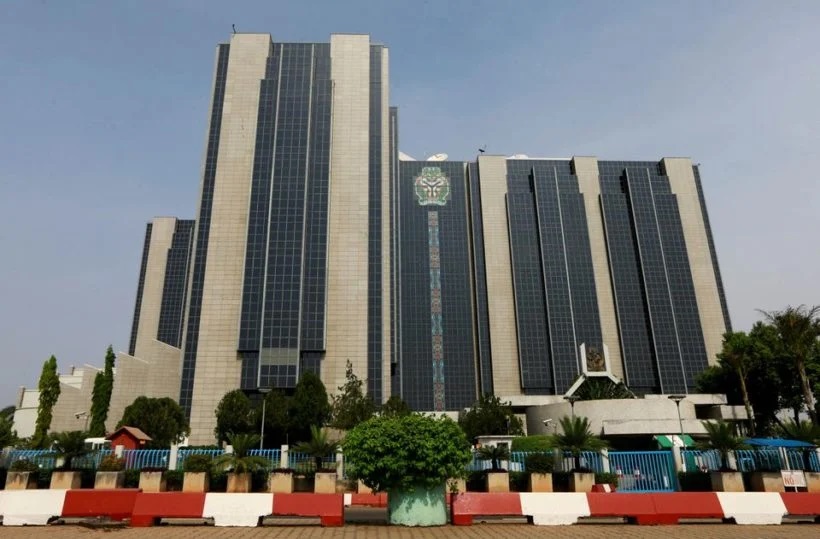
By Adedapo Adesanya
Nigeria has secured a major strategic gain at the ongoing 39th African Union Summit, after securing a permanent seat on the board of the African Central Bank.
The Minister of Foreign Affairs, Mr Yusuf Tuggar, confirmed this at the summit on Friday, highlighting it as a significant milestone for both Nigeria and the West African region.
The African Central Bank (ACB) is one of the original five financial institutions and specialised agencies of the African Union (AU).
“Importantly, Nigeria has been given the hosting of the African Monetary Institute and the African Central Bank. Not only that, in today’s plenary, Nigeria was confirmed a seat on the board of the African Central Bank. This is huge,” he said.
He stated that the development represents a diplomatic breakthrough, mentioning that the move faced initial opposition from some member states.
“It is something that was initially resisted by some countries, so now we have a permanent seat on the African Central Bank board. It’s a major success,” he added.
This year’s summit carries the theme Assuring Sustainable Water Availability and Safe Sanitation Systems to Achieve the Goals of Agenda 2063, the sessions will focus on advancing continental commitments to sustainable water management and improved sanitation, critical pillars for health, agricultural productivity, and the broader development aspirations of the AU’s Agenda 2063 framework.
Beyond financial governance, Nigeria and the West African bloc also recorded progress in elections to the Peace and Security Council, the African Union’s highest decision-making body on conflict and security matters.
The delegation announced that “Côte d’Ivoire, Sierra Leone, and the Republic of Benin have been elected,” with Benin securing a fresh term while the other two countries were re-elected.
The Peace and Security Council also convened to deliberate on the situations in Sudan and Somalia. Nigeria voiced strong reservations over Sudan’s potential readmission into the continental body.
“Nigeria voiced its reservations about Sudan being readmitted because, as you know, there are two warring factions in Sudan,” Tuggar stated.
“We reminded the Peace and Security Council that we have to abide by the rules and regulations of the African Union. If there has been an unconstitutional change of government, then the country should not be allowed to participate, and that was carried.”
The summit also outlined its 2026 theme: water sustainability. The Nigerian representative underscored the country’s strategic and demographic significance in advancing that agenda.
“Nigeria was created out of the confluence of the River Niger and the River Benue. So water is very important,” he said.
“We are the largest country in Africa, with a population of 230 million people. We’re going to be 400 million in the next 24 years. So water is a source of life. It’s very important, and we’re playing a very pivotal role in implementing the programs that are being set for the theme of the year.”
Banking
Standard Bank Hosts 2nd African Markets Conference
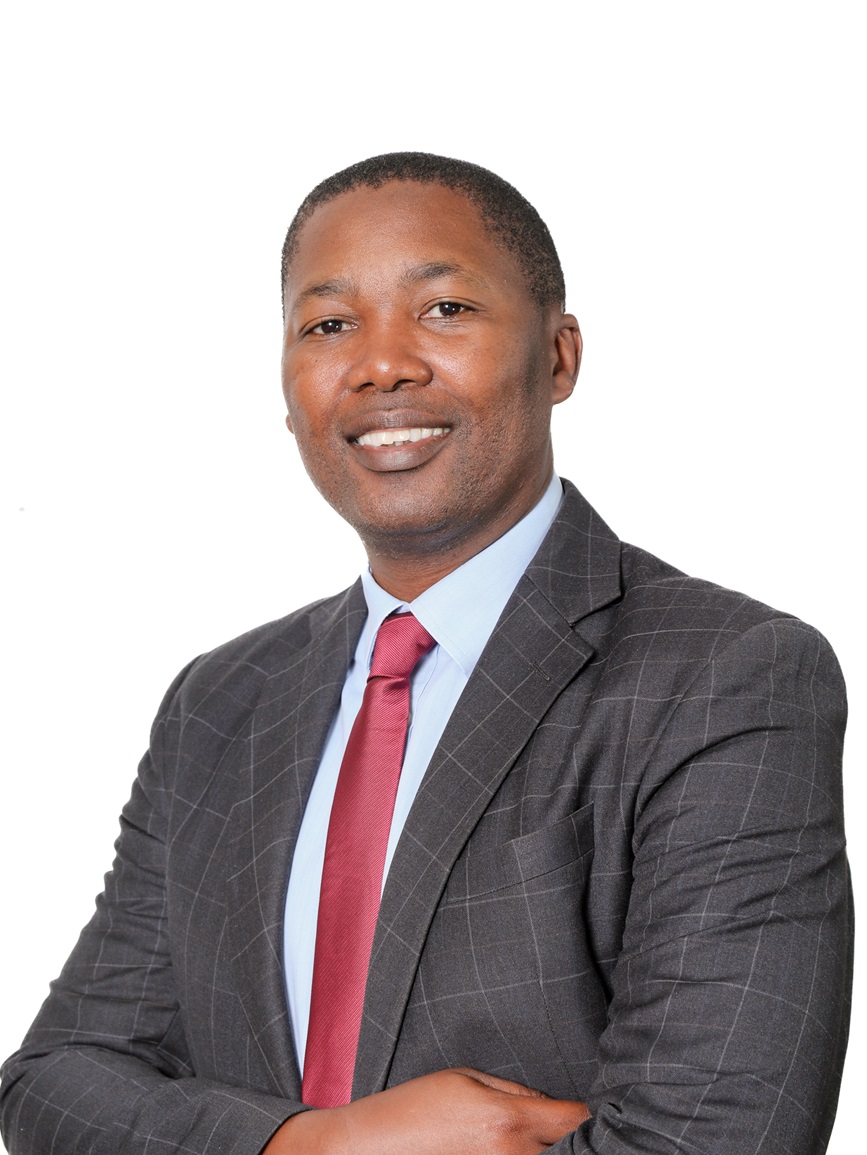
By Modupe Gbadeyanka
The second African Markets Conference (AMC) will take place in Cape Town, South Africa, from Sunday, February to Tuesday, February 24, 2026.
The event, hosted by Standard Bank, will bring together global institutional investors, sovereign wealth funds, and African policymakers to catalyse the flow of capital into the continent’s most critical sectors.
The theme for this year’s edition is Mobilising Global Capital at Scale for Africa’s Growth and Development.
AMC 2026 will host a high-level delegation of decision-makers, ensuring that the dialogue leads to tangible commitments.
The conference will be structured around five high-impact pillars designed to move the needle on investment, including prioritising infrastructure as an asset class, accelerating the energy transition, deepening African capital markets and mobilising private capital, enabling intra-African trade and flows of capital, and addressing Africa’s sovereign debt and cost sustainability.
It is estimated that by 2050, Africa will add one billion people, more than half in cities, yet it invests only $75 billion of the $150 billion it needs annually for infrastructure. Standard Bank aims to use AMC 2026 to ensure that African priorities remain at the centre of the global financial discourse.
“This year’s engagement bridges the gap between policy ambitions and market realities. Africa urgently needs practical measures to deepen capital pools, improve market liquidity, and strengthen regulatory frameworks that give investors the confidence to deploy capital at scale.
“Mobilising capital is not just about funding projects; it is about building the foundation of a more balanced and inclusive global economy,” the chief executive of Corporate and Investment Banking at Standard Bank Group, Luvuyo Masinda, stated.
-

 Feature/OPED6 years ago
Feature/OPED6 years agoDavos was Different this year
-
Travel/Tourism10 years ago
Lagos Seals Western Lodge Hotel In Ikorodu
-

 Showbiz3 years ago
Showbiz3 years agoEstranged Lover Releases Videos of Empress Njamah Bathing
-

 Banking8 years ago
Banking8 years agoSort Codes of GTBank Branches in Nigeria
-

 Economy3 years ago
Economy3 years agoSubsidy Removal: CNG at N130 Per Litre Cheaper Than Petrol—IPMAN
-

 Banking3 years ago
Banking3 years agoSort Codes of UBA Branches in Nigeria
-

 Banking3 years ago
Banking3 years agoFirst Bank Announces Planned Downtime
-

 Sports3 years ago
Sports3 years agoHighest Paid Nigerian Footballer – How Much Do Nigerian Footballers Earn


